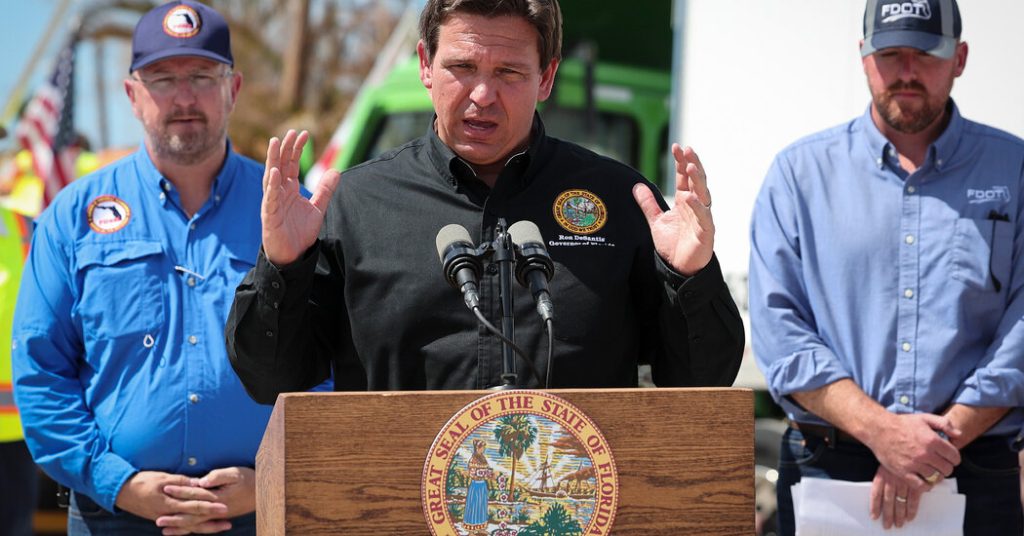Florida Governor Ron DeSantis recently signed legislation that will no longer require the state government to consider climate change when crafting energy policy, along with other energy-related restrictions. The new law, which passed in March and goes into effect on July 1, prohibits the construction of offshore wind turbines in state waters, repeals state grant programs for energy conservation and renewable energy, and eliminates requirements for state agencies to use climate-friendly products and purchase fuel-efficient vehicles. Additionally, the legislation prevents municipalities from restricting the type of fuel used in appliances like gas stoves. Governor DeSantis touted these measures as a way to maintain a focus on traditional energy sources and reject what he called the agenda of “radical green zealots.”
Despite the vulnerability of Florida to the impacts of climate change, such as sea level rise and extreme weather, the state has taken steps that could potentially hinder efforts to address these issues. Last year was the hottest on record in Florida, with devastating hurricanes causing billions of dollars in damages. Major insurers are pulling out of the state due to growing losses from floods and extreme weather, leaving homeowners with high insurance premiums. Governor DeSantis has supported some resilience programs, but his recent actions have been criticized for neglecting the health and safety of Floridians in favor of appeasing large corporations and fossil fuel companies.
Governor DeSantis has been vocal in his opposition to climate policies, framing them as part of broader partisan culture wars. He has rejected federal funds for energy-efficient home improvements and promised to dismantle climate regulations if elected president. Florida’s energy sources are largely based on natural gas, with minimal reliance on renewable energy like solar or wind power. Critics argue that the governor’s decision to sign the recent legislation could lead to negative consequences for Floridians, including higher fuel prices, insurance premiums, and an increase in climate-related disasters and deaths.
While the deletion of climate change as a priority in state energy policy may be symbolic, it could have significant political implications. Although a future governor could still prioritize climate change in energy policy, the omission of climate change as a consideration sends a strong signal. This could impact private-sector actions, such as investments in clean energy initiatives and research at universities. There are concerns that the lack of focus on climate change could deter students, professors, and research funding from coming to Florida, potentially hindering progress in addressing climate-related challenges.
In conclusion, Florida’s recent legislation signed by Governor Ron DeSantis signals a shift away from considering climate change in energy policy and focuses on traditional energy sources. Despite the state’s vulnerability to climate impacts, such as rising temperatures and extreme weather events, the measures put in place could have negative consequences for residents. Critics argue that the decision to prioritize traditional energy sources over addressing climate change could lead to higher costs and increased risks for Floridians. The political and symbolic implications of this action could impact private-sector investments and research efforts in the state, potentially hindering progress in addressing climate-related challenges.







